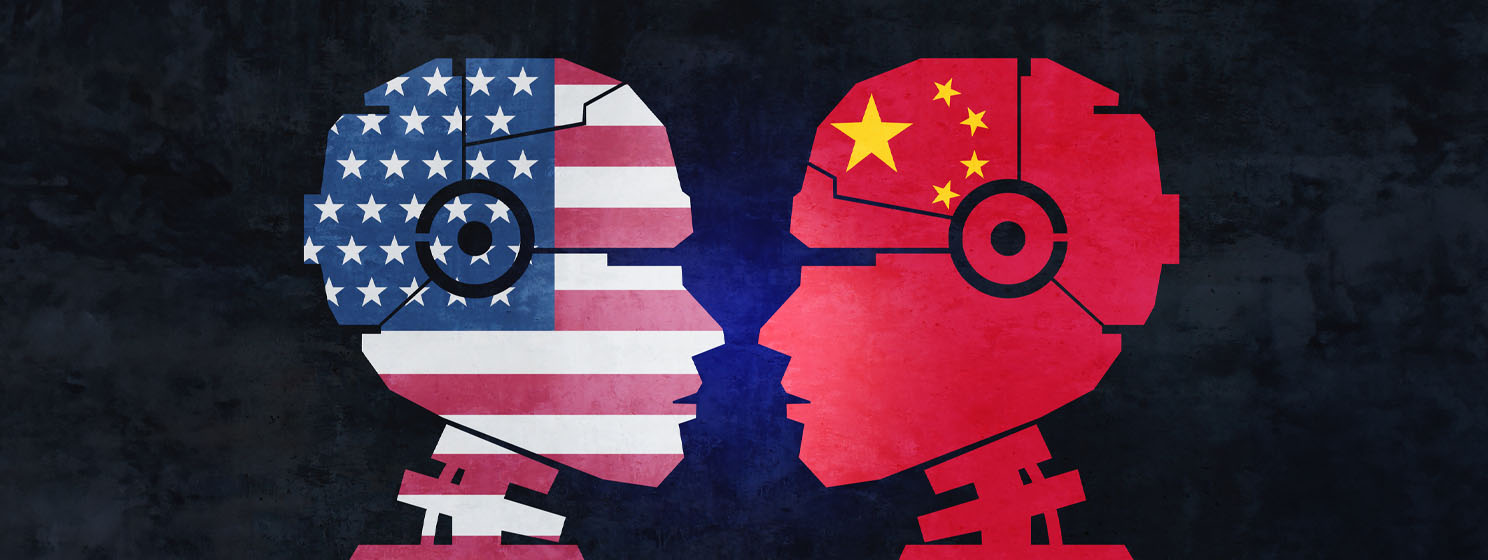|
Getting your Trinity Audio player ready...
|
Over 10,000 Americans have submitted their feedback on Donald Trump’s AI Action Plan, with the top concerns revolving around copyright infringement, using artificial intelligence (AI) for nefarious purposes, the threat of the East, and how tariffs will harm the sector’s development.
In February, the White House called for public input on its AI Action Plan, with which Trump replaced the framework implemented by his predecessor, Joe Biden, just over a year earlier. The White House Office of Science and Technology Policy (OSTP) has now published the submissions, which included input from academia, startups, innovators, and market leaders like OpenAI, Anthropic, and Meta (NASDAQ: META).
“America is, and must remain, the global leader in AI technology. The huge volume of public comments we received reflects the deep interest Americans have in the future of AI,” commented OSTP director Michael Kratsios.
While the range of concerns and recommendations varies greatly, some aspects took center stage across the board. One is copyright infringement and intellectual property, an area that has pitted the public against AI companies. The former believes these companies should be forced to compensate data owners and creatives (and dozens of lawsuits are already in court), while the latter believes that regulators should protect them more and give them more legroom in data access.
This division was evident in the feedback. The general public, human rights activists, and most nonprofits have urged the Trump government to implement stricter copyright protection laws and heavily punish AI firms that breach these laws. They called for greater protection of creatives and better compensation when their data is used to train AI models.
The AI companies had a contrasting view. OpenAI wants the government to “preserve American AI models’ ability to learn from copyrighted material.” The ChatGPT maker even took aim at European data protection laws, which it says are unpredictable and “hinder AI innovation, particularly for smaller, newer entrants with limited budgets.” America must not follow suit, it says.
This view was widely held by Meta, Google (NASDAQ: GOOGL), Anthropic, Microsoft (NASDAQ: MSFT), French firm Mistral AI, Amazon (NASDAQ: AMZN), and other sizable AI firms. Investors in these firms also cautioned against limiting the AI models’ access to data.
“…an aggressive interpretation of copyright law places US developers at a significant disadvantage over those from countries with different views of IP protections,” said Andreessen Horowitz.
The $42 billion California-based venture capitalist, an investor in OpenAI, Mistral, Databricks and several other AI giants, even wants the U.S. government to take ‘several steps’ to remind Americans that existing IP laws “protect the ability of developers to train models even using copyrighted works.”
Americans united in concern over ChinaWhile the general public and the tech elite were divided over copyright, energy consumption, AI security, and industry deregulation, they were united over one aspect: China.
The public worries that China could pose a challenge to America’s domination in AI, with DeepSeek often cited as a show of the Asian nation’s might. DeepSeek’s models rocked the Western world and questioned America’s AI leadership. Two weeks after its launch, DeepSeek was the most downloaded freeware app in the U.S., triggering a $593 billion stock market value loss for Nvidia (NASDAQ: NVDA), the highest one-day loss in history.
OpenAI noted that China’s “authoritarian” leadership allows it to marshal resources quickly, and the U.S. must respond in kind or lag behind. Google raised the alarm over China’s growing patents, which recorded the highest rise globally last year.
Anthropic proposed that the U.S. government must probe AI models released on the open Internet and assess whether they “merit national security attention.” It noted that China’s DeepSeek does not have the same security filters that American models do; for instance, it answers biological weaponization questions, “even when formulated with a clearly malicious intent.”
While many of the concerns were valid, the feedback from the major corporations also invoked China to drive their own interests. Andreessen Horowitz, for instance, urged the American government to protect AI companies against content creators and legacy media firms, who are “advancing misguided arguments that [AI data scraping] infringes their copyrights.” If Trump fails to side with the AI leaders, American firms will be at a significant disadvantage to their rivals in China, it says.
The U.S. government has massively clamped down on the sale of U.S. chips from the likes of Nvidia and AMD to China. A Biden-era campaign restricted the export of advanced chips to China, such as Nvidia’s H100, an industry-standard in American AI.
But this isn’t enough, Anthropic says. The firm believes that even the low-performance chips, such as the H20, excel at some aspects like text generation, which it believes is allowing China to compete with the United States.
“The Trump administration has an opportunity to close this loophole,” Anthropic stated.
In order for artificial intelligence (AI) to work right within the law and thrive in the face of growing challenges, it needs to integrate an enterprise blockchain system that ensures data input quality and ownership—allowing it to keep data safe while also guaranteeing the immutability of data. Check out CoinGeek’s coverage on this emerging tech to learn more why Enterprise blockchain will be the backbone of AI.
Watch: Demonstrating the potential of blockchain’s fusion with AI

 02-25-2026
02-25-2026 




